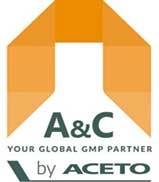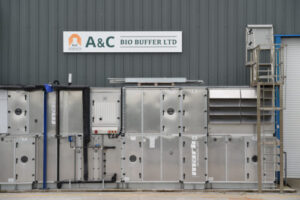What is Gene Therapy?
Gene therapy is a novel form of medicine in which aberrant genes are corrected by introducing genetic material into cells. There are several ways to introduce genes into living human cells, which are referred to as vectors. These include plasmid DNA, bacterial, and viral vectors. The delivery of functional genes to specific cells within the human body enables the normal functioning of abnormal genes.
- Viral vectors: viruses have the natural ability to deliver genetic material into host cells. Because of this capability, viruses are frequently altered to introduce beneficial genes into afflicted cells, which makes them perfect for gene therapy.
- Bacterial vectors: To stop target human cells from spreading infectious diseases, therapeutic genes are also transferred into target cells using modified bacteria.
- Circular DNA molecules, or plasmids, can be altered to introduce therapeutic genes into diseased cells.
How is Gene Therapy manufactured?
The process of manufacturing gene therapy can be broadly broken down into three stages: formulation processing, where therapeutic genes are combined with vectors to create an injectable final product; downstream processing, which purifies the vectors and therapeutic genes; and upstream processing, which produces the vectors and therapeutic genes.
In order to guarantee that there are no contaminants incorporated into the final therapeutic good and that the raw materials and excipients do not jeopardize the safety and effectiveness of the gene therapy product, they must be produced in full compliance with GMP.
1. Upstream processing for gene therapy: This stage begins with the preparation of cell culture media for the growth of vector viruses and cells. These are essential in delivering therapeutic genes to target human cells. To obtain safe and efficacious vectors and therapeutic genes, the use of GMP grade excipients is preferred in upstream processing of gene therapy.
Some of the raw materials used in the manufacturing process upstream of gene therapy are as follows:
- Energy source – Media requires carbohydrates such as GMP grade Sucrose to provide necessary energy to allow growth of viral vectors and/or therapeutic genes.
- Minerals and salts: To maintain the proper tonicity of growth media, inorganic salts are utilized. GMP grade Sodium Chloride is widely used as an inorganic salt in upstream processing.
2. Downstream processing for gene therapy: After sufficient amounts of therapeutic genes and vectors are acquired, they are separated from cell debris. Viral vectors are then loaded with therapeutic genes to obtain pure, biologically active gene therapy ingredients. Purification is crucial, as it directly affects the efficacy and safety of the final formulation.
The following kinds of raw materials are utilized in the manufacturing process of gene therapy downstream:
- Agents for lysis and purification: These induce cell lysis in order to extract therapeutic genes. GMP grade PMSF is a widely used lysing agent in gene therapy manufacturing.
- Buffers: These are critical in maintaining the required pH range of media. Some of the buffers employed in gene therapy manufacturing include a variety of phosphate buffers, GMP grade Tris HCL, and Tris Base buffers.
3. Formulation handling:
An assortment of GMP grade excipients are used in the production of a stable, secure, and effective gene therapy formulation. These GMP-grade excipients have multiple functions, such as preservatives, tonicity adjusters, stabilizing agents, and lyoprotectants.
Gene therapy formulations use a variety of raw materials, such as:
- Agents for stabilization: These substances are used to stabilize biological materials such as proteins that are naturally unstable. Some of the stabilizing agents used in final gene therapy formulations are GMP grades of PEG 400, Polysorbate 80 and DMSO.
- Preservatives: These are frequently used to stop the growth of harmful bacteria and fungi in gene therapy formulations. Widely used preservatives include GMP grades of 2-Phenoxyethanol, Thimerosal, Benzalkonium Chloride, Phenol liquefied and Formaldehyde.
- Adjusters for tonicity: Gene therapy formulations must be isotonic to body fluids at the administration site. GMP grades of Sodium Chloride and Calcium Chloride are generally used to adjust tonicity.
- Lyoprotectants – These are the agents used to prevent degradation of biologically active genes when undergoing lyophillization. GMP grade Sucrose is an example of a lyoprotectant widely used in gene therapy formulations.
Why are GMP grade excipients preferred in gene therapy manufacturing?
- Compendial grade: Excipients classified as GMP grade, such as compendial grade excipients, meet rigorous requirements outlined in pharmacopoeias like USP, EP, BP, and JP. The best possible quality products are guaranteed by these exacting compendial standards.
- Traceability and consistency: GMP-grade excipients guarantee the traceability and consistency of the raw materials used in manufacturing procedures and finished gene therapy formulations. Consistency and traceability are critical in determining the robustness of manufacturing processes and the quality of products from the perspective of biopharmaceutical quality.
- Supply assurance and compliance: Because gene therapy products use a range of ingredients, a consistent, high-quality supply of those ingredients is needed in order to comply with legal requirements.
- GMP compliant packaging (appropriate packaging material): Maintaining the compendial quality of excipients requires GMP grade packaging and repackaging. For packaging materials to be used in final formulations safely and effectively, they must meet GMP packaging standards.
A&C has been servicing the biopharmaceutical market for more than 50 years. Gene therapy producers worldwide receive from us a broad variety of GMP grade excipients, intermediates, and process solutions. Some of the top biopharmaceutical companies in the world use our GMP raw materials in a range of innovative gene therapy products.
In addition, we offer GMP custom manufacturing, GMP packaging & repackaging of liquid and powder raw materials, and GMP custom development of specialty and innovative excipients. A&C provides customized GMP solutions for raw materials and excipients, from formulation development in the early stages to supply on a commercial scale in the later stages.
Glossary of acronyms:
GMP – Good Manufacturing Practice
DNA – Deoxyribonucleic Acid
Tris – Tromethamine Hydrochloride
PEG 400 – Polyethylene Glycol 400
DMSO – Dimethyl Sulfoxide
USP – United States Pharmacopeia
EP – European Pharmacopoeia
BP – British Pharmacopoeia
JP – Japanese Pharmacopoeia



